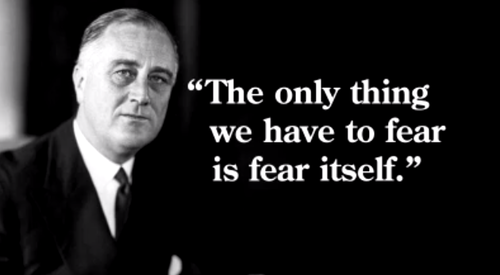Getting out of the "Nice" habit
- CRMc
- Nov 8, 2016
- 2 min read
Why do we succumb to the Heresy of Niceness?
Back in the day, survival of the community relied upon all members contributing actively to the society. Our success (i.e., ability to survive with adequate food, water, and shelter) was dependent upon all members in any given group working well together. Life and death literally relied upon whether your hunting party was functioning cohesively to bring down the wildebeest, so you’d better make sure that you were on good terms with everyone in the group. Offend a socially high-ranking member of the party, and you would be shunned from the community, left to manage on your own, and most likely perish in the harsh environment as you struggled, alone, to provide for yourself.
Nowadays, the bulk of the decisions within our social interactions do not come with life or death consequences. Why, then, do our brains still act as if any social misstep or stance that could be perceived as offensive will result in our ultimate demise? Why do we feel that we cannot speak up in a group if our opinion dissents with the whole? Why do we hesitate to call people out when their actions don’t match their words? What are we so afraid of?
FEAR: False Evidence Appearing Real

“The only thing we have to fear is fear itself.”
– Franklin Delano Roosevelt
Dr. Helen Schucman (A Course in Miracles) and Gabrielle Bernstein (May Cause Miracles) succinctly define that what we are afraid of is fear, but not just any fear: fear that is False Evidence Appearing Real. We believe the stories in our head we’ve made up about what we think we see and experience, based on how society has trained us to behave and respond in social situations. We convince ourselves that if we act in a way that would cause someone pain, we will be ousted from society and left destitute. This response is so strongly ingrained that even when we know better, we don’t speak up. We don’t share our opinions, we don't keep ourselves or others accountable, and we don't confront difficult issues head on because society has warned us to “not rock the boat.” Fear instructs us that getting along is more important than anything else: our survival depends on it.
This mindset, of course, is just fear maintaining control over our lives. Choosing to believe the things fear tells us blocks us from being able to see ourselves as we are: fearfully and wonderfully made in the image of God, to be beacons of His love and light in the world (Psalm 139:14, John 12:36). As Gabrielle Bernstein explains,
When we side with [fear] and believe that we’ve separated from love, we unconsciously feel as though we’ve sinned. This belief in sin creates an experience of guilt. We feel this unconscious guilt because we think we’ve killed our connection to love. Then comes the inevitable fear, the emotion we experience based on the thought that we need to be punished for turning our back on love. (Bernstein, May Cause Miracles, page 19).
So now we understand at least one reason why we choose to be nice instead of being kind. Next week I'll look at how tacit norms play into our choice to believe fear rather than claiming our truth.




Comments